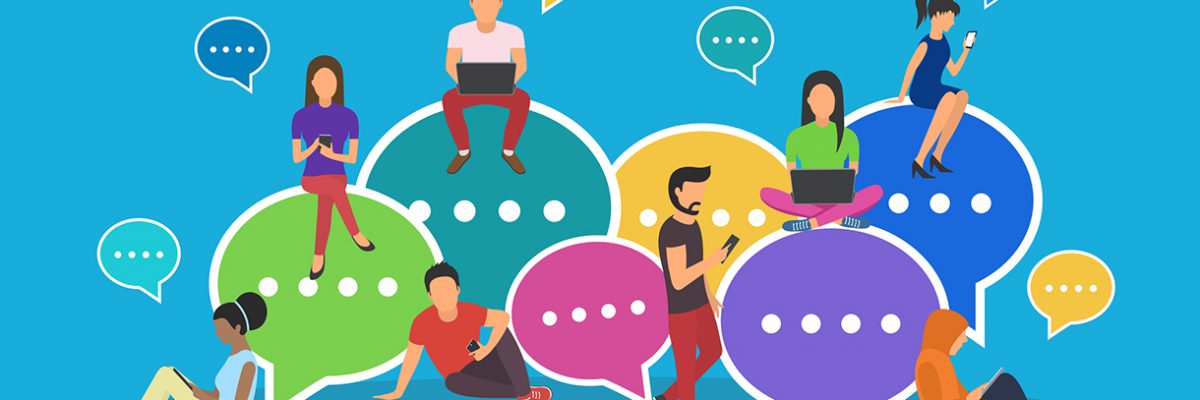
Data Show No Evidence That Teens’ Social Media Use Predicts Depression Over Time
Longitudinal data from adolescents and young adults show no evidence that social media use predicts later depressive symptoms. Visit Page
Researchers are using data from wearable devices to deliver digital interventions when people need them most. Visit Page

Learn how research on augmented reality glasses, virtual reality headsets and other advanced devices can be incorporated into classroom instruction. Visit Page
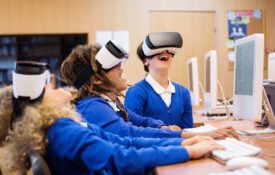
Teaching: This lesson plan allows students to explore how humans meet social needs through nonsocial behaviors. Visit Page

The decision to share personal information may boil down to a battle between the drive for privacy and the drive to disclose, according to this recent article. Visit Page
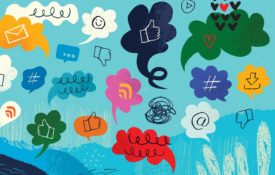
Meditation apps offer users an accessible introduction to an ancient, evidence-based practice known to help quiet the mind. But exactly how much a person needs to use these apps to reap the benefits of guided meditation remains unclear. Visit Page

Rewatching recorded behavior, whether on a Tik-Tok video or police body-camera footage, makes even the most spontaneous actions seem more rehearsed or deliberate, new research shows. Visit Page

Podcast: Steven Rathje (New York University) and APS’s Özge G. Fischer-Baum explore the implications for societal change, in-group and out-group behavior, and emotional choices on internet usage. Visit Page

Teaching: The idea of love languages has become hugely popular and the term itself is pervasive in popular culture. This article provides teaching materials to encourage students to think critically about psychological science and popular self-help advice. Visit Page
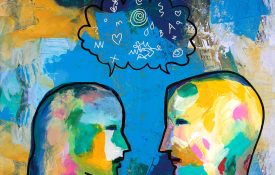
Online platforms like MTurk and Prolific have dramatically broadened scientists’ access to study participants. But are researchers using the tools effectively? Visit Page

Doing good feels surprisingly good. That’s the bottom line of two new Current Directions in Psychological Science research summaries. Visit Page
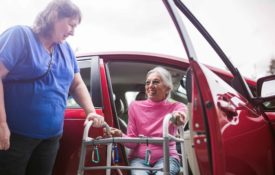
Imagine that we designed a fully intelligent, autonomous robot that acted on the world to accomplish its goals. How could we make sure that it would want the same things we do? Alison Gopnik explores. Read or listen! Visit Page

The more a person stares at themselves while talking with a partner in an online chat, the more their mood degrades over the course of the conversation, a new study finds. Alcohol use appears to worsen this effect. Visit Page

To speak about self-injury and how online communities might help, Emma Preston, an APS member and graduate student at the University of Southern California, joined APS’s Ludmila Nunes. Visit Page

Podast: Özge G. Fischer-Baum and Jeremy Foust (Kent State University) dive into information avoidance and the factors that impact it, as well as how social media has affected the ways we take in information. Visit Page

The amount of time you spend each day using different smartphone apps may be enough to reveal your identity, according to new research published in the journal Psychological Science. Visit Page

Psychological science can help decrease the negative consequences of Internet use. Visit Page

Data from more than 17,000 teenagers shows little evidence of a relationship between screen time and well-being in adolescents. Visit Page

A study shows how much people criticize their employers and colleagues on social media, and what consequences they face when they do so. Visit Page

The allure of smartphones, and their impact on our relationships, might be the result of our evolutionary history, researchers suggest. Visit Page

Students who surfed the web in a college course had lower scores on the final exam than did those who didn’t go online. Visit Page

The proliferation of digital information has given people greater access to information. Yet there are few checks and balances to separate false and misleading information from the truth. Thus, people must become smart ignorers of information. Visit Page

Psychological scientists and other researchers are exploring the ways that online communication is affecting the formation of friendships and romantic relationships. Visit Page

New findings from over 120,000 adolescents in the UK indicate that the relationship between screen time and well-being is weak at best, even at high levels of digital engagement. Visit Page

Data from an online smoking cessation intervention demonstrate the potential of bringing evidence-based mental health care to a wider range of people via the internet. Visit Page

A comprehensive research report provides an evidence-based guide that parents, educators, and app designers alike can use to evaluate the quality of so-called “educational” apps. Visit Page

Lesson plans about the effects social media has on our mood and about retrieval-induced forgetting. Visit Page

Scrolling through apps on a smartphone might actually sap cognitive resources rather than restoring them during breaks. Visit Page

The same brain circuits that are activated by eating chocolate and winning money are activated when teenagers see large numbers of “likes” on their own photos or the photos of peers in a social network Visit Page

Researchers find that teenagers’ online lives closely resemble their offline experiences, but bullying is one area where the digital age may be introducing new risks. Visit Page

An adaption of a 2022 preprint article published in Technovation, this article explores how alertness might be related to entrepreneurial discovery and whether positivity or negativity are more associated with alertness. Visit Page

A sample of articles on effort, the origins of disease, control and attention, the predictive mind, digital parenting, psychopathology models, spatial representations, and more. Visit Page

Researchers explore the causes and consequences of bullying that occurs through Facebook, text messages, and other digital platforms. Visit Page

Sometimes the words we choose say more than we intend. New research on a fact-checked collection of tweets from former president Donald Trump uncovered telltale word choices when he was being deliberately misleading. [Video Included] Visit Page

Recent highlights from APS journals articles on learning about the self, mental health interventions, representational momentum for physical states, and much more. Visit Page

Researchers in Germany examined how people’s connectedness to social media platforms such as Facebook influence users’ self-concept. Visit Page

Whether a complement to a standard classroom environment or a cornerstone of Web-based classes, online discussion boards are becoming a staple in higher education. APS Past President Morton Ann Gernsbacher discusses how to make those discussion boards as engaging and interactive as possible. Visit Page
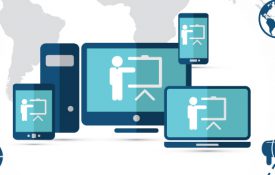
APS Past President Morton Ann Gernsbacher designs her online psychology courses to encourage students to engage with content more deeply than they might in traditional college classes. Visit Page

Six months into the COVID-19 pandemic, a new set of practices has begun to take shape in how psychological scientists teach and conduct research. A global survey of the field reveals the scope of the impact, along with strategies being used to overcome the considerable challenges associated with moving research and learning from in-person laboratory settings and classrooms to online platforms. Visit Page

A study of employees in South Africa indicates that people generally view their experiences with smart phones, emails, and wireless networks with more positivity than negativity. Visit Page

There has been little to no increase in the association between adolescents’ technology engagement and mental health problems. Visit Page
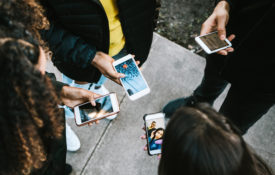
Twitter can serve as a dashboard indicator of a community’s psychological well-being and can predict county-level rates of heart disease. Visit Page
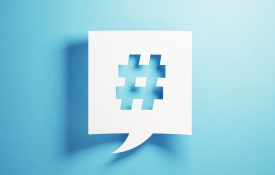
While people tend to share political information with those who have similar ideological preferences, research indicates that Twitter is more than just an “echo chamber.” Visit Page
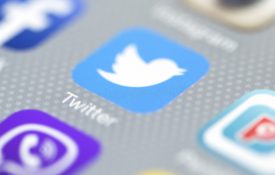
Three experts share their experiences and knowledge about conducting online research: from applying for funding to creating experiments and collecting data. Visit Page

Cell phones and social media can help teens cope with stressful events. Visit Page
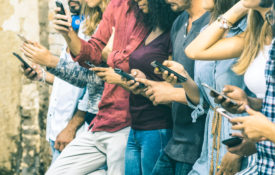
Scientists may be heard above the din of misinformation by going to where most people get their information—social media. Visit Page
